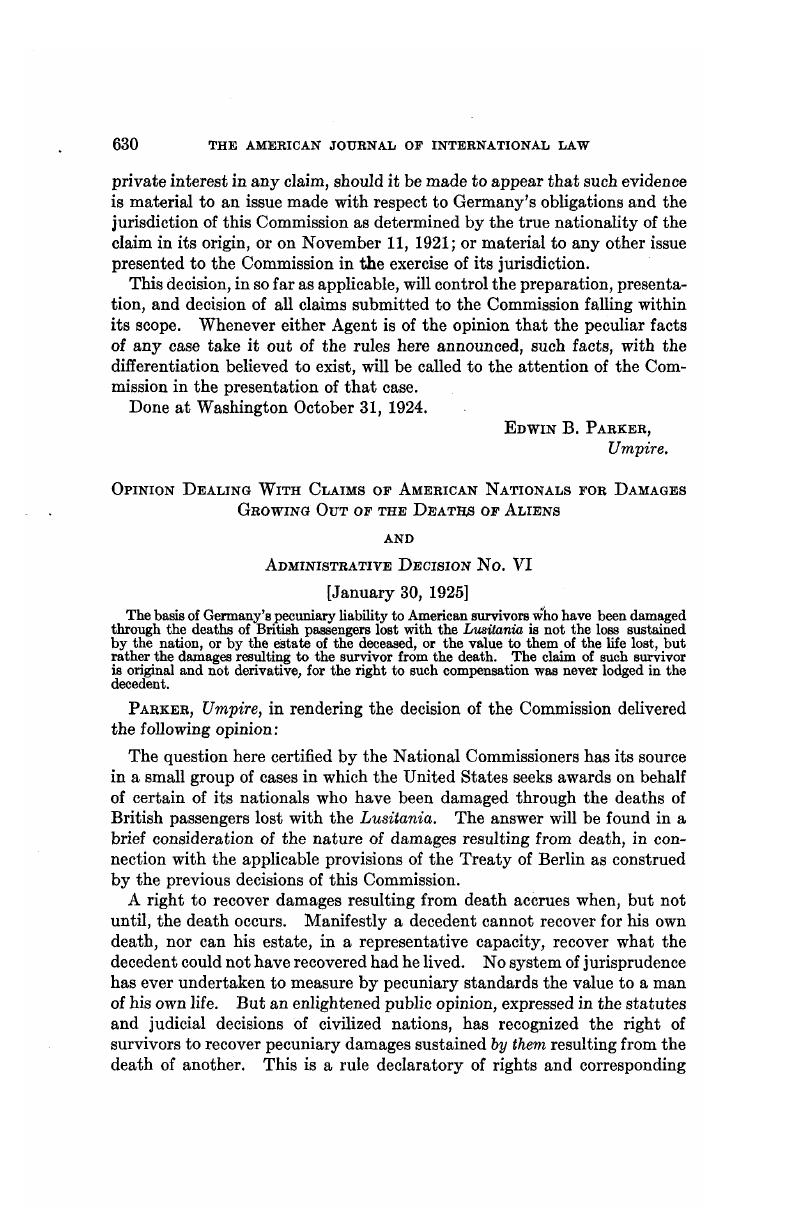No CrossRef data available.
Published online by Cambridge University Press: 04 May 2017

1 See paragraph 1 of Annex I to Section I of Part VIII, Treaty of Versailles.
2 See Opinion in the Lusitania Cases, Decisions and Opinions, pages 29–31.Google Scholar[vol. 18, pp. 371–372 of the Journal.]Google Scholar
3 See Opinion in the Lusitania Cases, Decisions and Opinions page 17 [vol. 18, p. 361 of the Journal] and Opinions and Decision in Life-Insurance Claims, pages 132–133 and 138.Google Scholar[This Journal, pp. 593–609, supra.]Google Scholar
4 See Decisions and Opinions, page 188.Google Scholar[This Journal, p. 629, supra.]Google Scholar
5 In estimating the damages sustained by its nationals through the loss of civilian lives, Great Britain applied substantially the same rules as are recognized by this Commission in its Opinion in the Lusitania Cases. See “Table B—British Claim against Germany for Reparation in Respect of Loss of Life of Civilians,” found in the report made by Great Britain in connection with “British Claim for Reparation against Germany under Part VIII of the Treaty of Versailles.” The British claim was based on the damages sustained by the survivors, and not on the value of the life lost. Only survivors possessing British nationality were taken into account. See the final report dated February 26, 1924, of the “Royal Commission on Compensation for Suffering and Damage by Enemy Action” within Annex I to Section I of Part VIII of the Treaty of Versailles (Cd. 2066).
6 Cases have come to the attention of this Commission in which Great Britain has declined to consider claims of American survivors of a British subject whose life was destroyed with the Lusitania and referred such claimants to the Government of the United States.